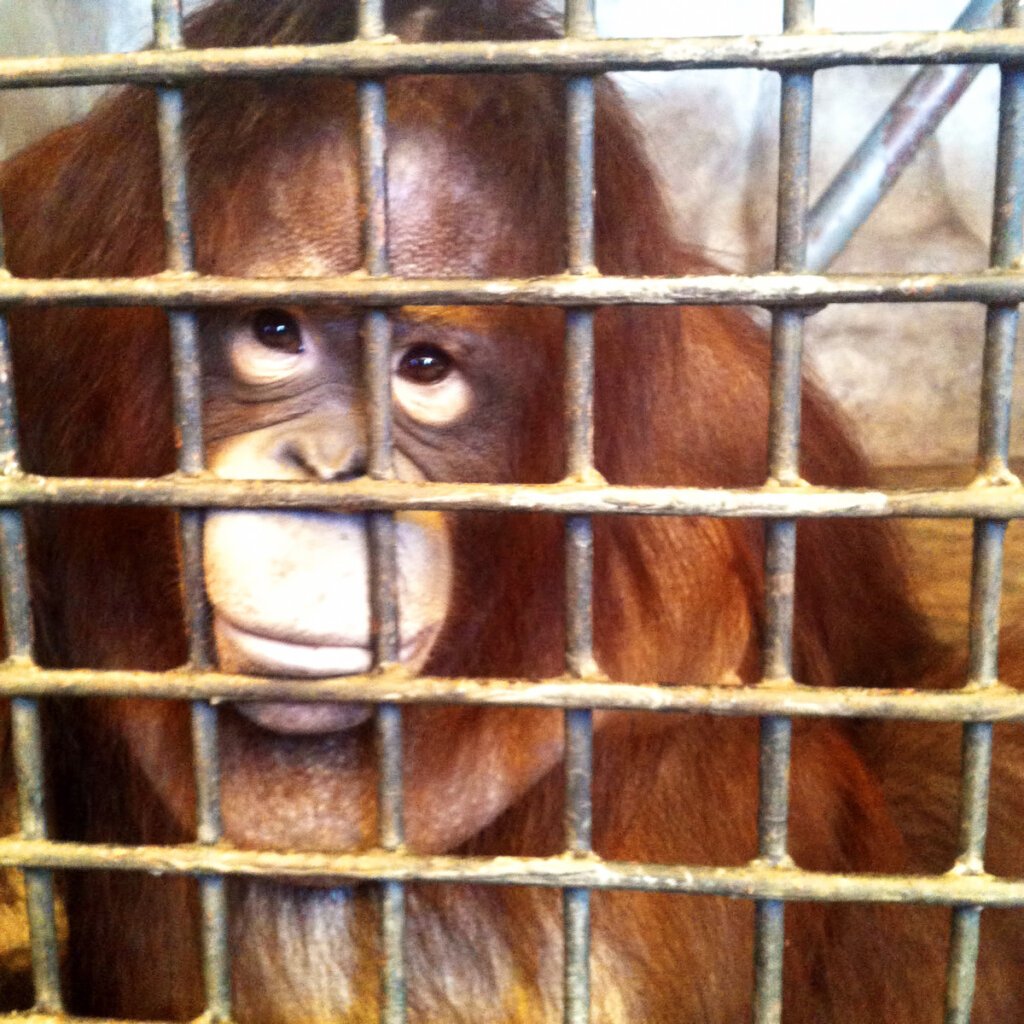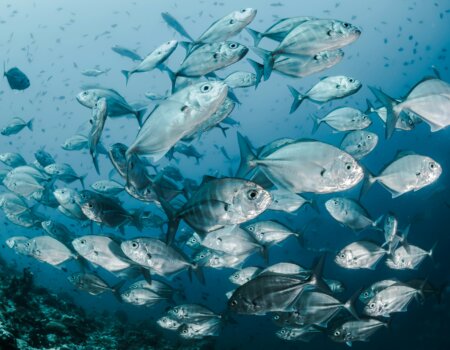Raising Money for Bushfire Victims
The scale of Australia’s bushfire crisis is unfathomable. Determined efforts by our fire services and by volunteers to combat the blazes and save human and animal lives have been nothing short of heroic, yet 28 humans and more than 1 billion other animals – from native koalas and kangaroos to lambs and cows trapped on farms – are dead.
Caring people all around the world have already raised millions of dollars to help our communities and wildlife bounce back, but the road to recovery will be long. PETA strongly believes we must keep supporting each other well after media interest has faded – and also that we must make lifestyle changes in order to prevent future climate-related catastrophes.
To raise funds for Animal Rescue Cooperative – a charity that’s helping animals affected by the fires by distributing supplies and assigning volunteers to the locations where they’re most needed – PETA hosted a sausage sizzle in Blackwattle Bay Park in Glebe just ahead of Australia Day.
The sausages were vegan, of course – because raising money for burned animals by eating burned animals would be totally absurd – and were donated by The Alternative Meat Co, an Aussie brand that’s changing the game when it comes to plant-based meat.
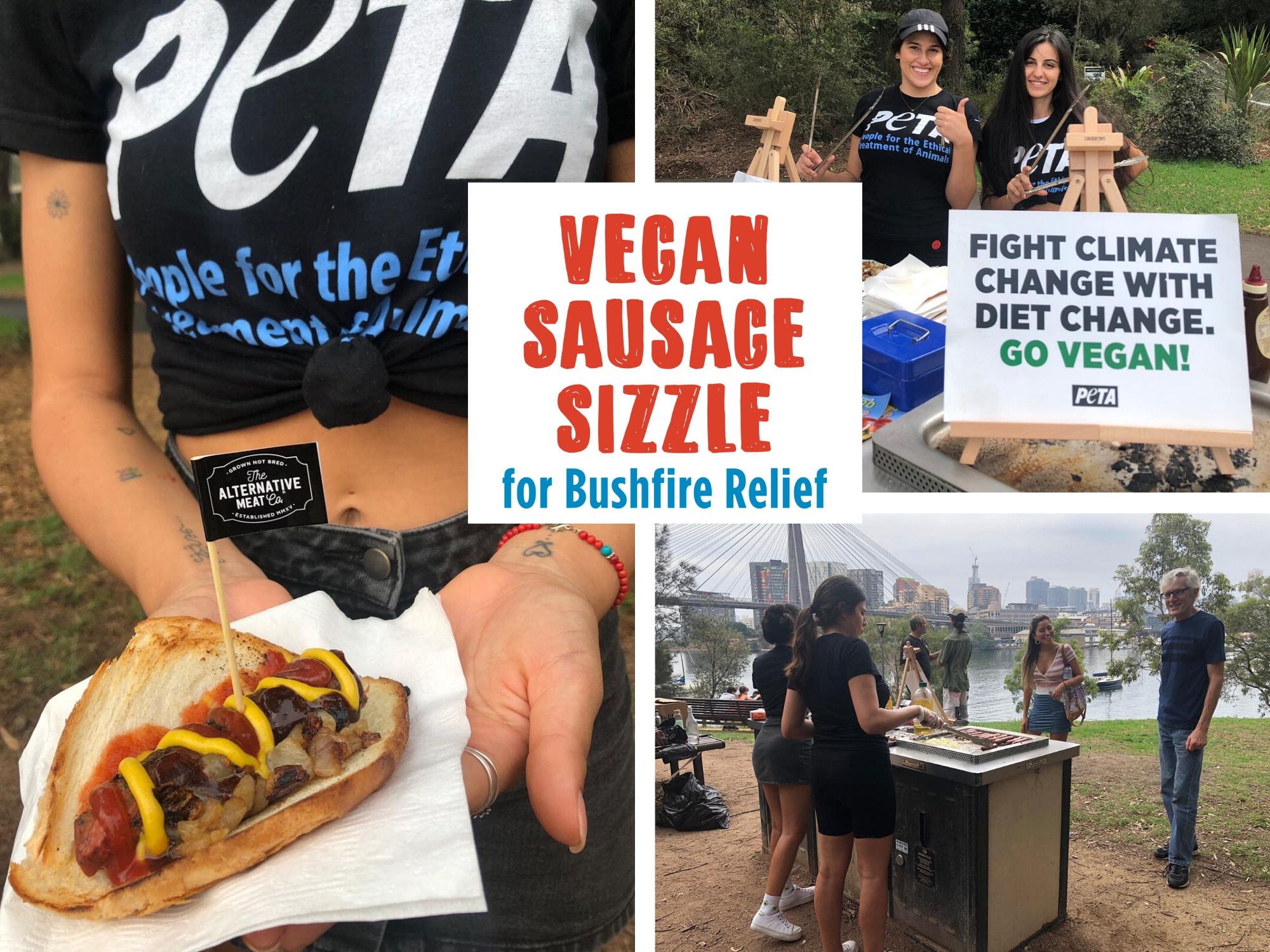
Raising money for emergency relief efforts is certainly important, but in the long term, as a nation, we need to adopt more sustainable habits that will protect the environment.
At the barbecue, PETA staff and volunteers had many heartening conversations with people who wanted to do more to help animals and the environment but weren’t sure how. We handed out information about the link between animal agriculture and climate change, a key factor in the severity of this year’s bushfires.
According to the Food and Agriculture Organisation of the United Nations, the animal agriculture sector is responsible for up to 18% of human-induced greenhouse-gas emissions. At nearly every stage of meat, egg, and milk production, climate-changing gases are released into the atmosphere, disrupting weather patterns, affecting temperatures, and damaging the health of our ecosystem. A recent University of Oxford study found that avoiding meat and dairy is the “single biggest way” for an individual to reduce their environmental impact.
More and more Aussies are questioning the logic of persisting with an enormous, thirsty animal agriculture industry on a drought-stricken continent. A single cow raised for beef can drink up to 60 litres of water per dayand this country is home to 26.2 million of them. Add to this the 1.4 million cows used for dairy, who each need up to 85 litres a day while lactating, and you’re looking at as much as 1.6 billion litres of our scarce water supplies going to cows – who pollute even more water with their waste and emit the potent greenhouse gas methane.
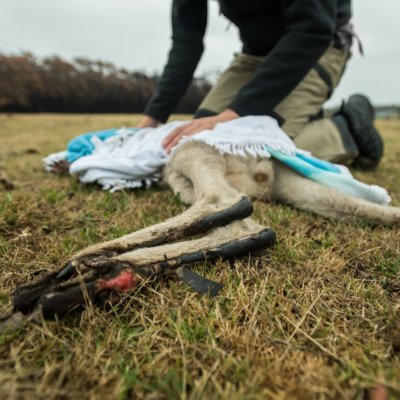
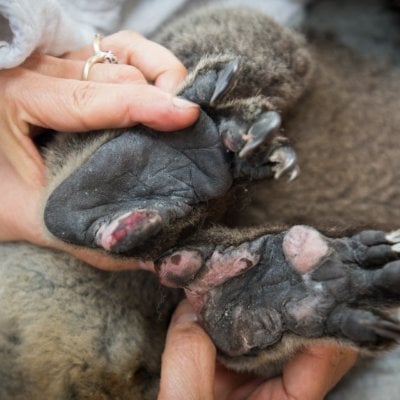
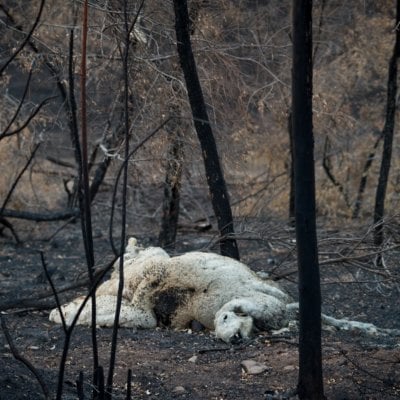
We must start to be proactive about our climate situation.
By far the easiest way to have a positive impact is to stop eating animals. It requires zero governmental initiative and no promises from giant corporations – it simply involves choosing to leave animal-derived foods out of the shopping cart on that trip you’re already making to the grocery store. It’s as easy as throwing a delicious vegan sausage on the grill.
Help Animals in 2025: Renew Your PETA Membership!
